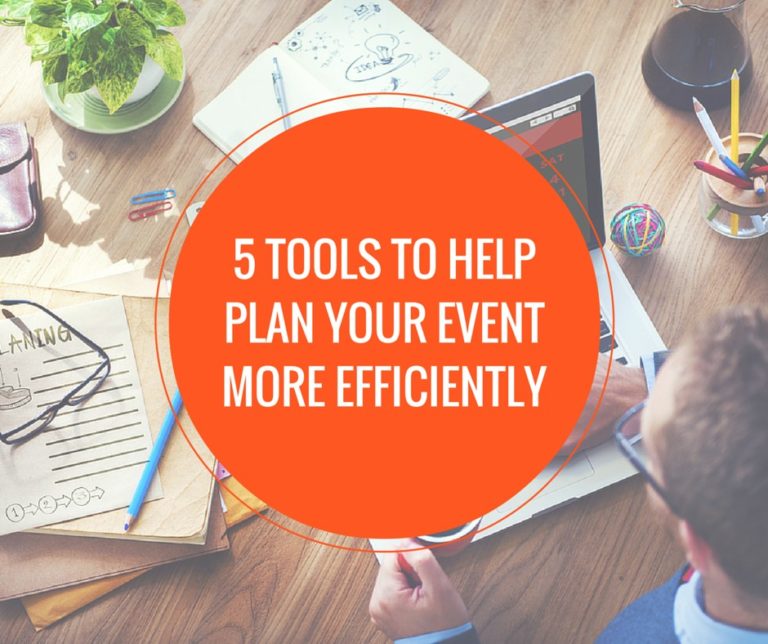Before COVID-19 changed the world as we knew it, events almost always required in-person attendance. Participants would physically gather at a venue, live the experience, and travel back home. But the pandemic brought with it a world of changes. Suddenly, virtual events hosted on virtual platforms became the lifeblood of the industry, enabling participants to experience events from the comfort and safety of their homes.
Although both in-person and virtual events have their benefits, there is another, better type of event between the two. As we steadily move toward normalcy, these in-between events are rising in popularity, catering to both sides: those who enjoy real-life experiences and those who prefer to attend events virtually. Known as hybrid events, they have gained enormous traction in recent years for all the benefits they offer, including attracting in-person and virtual attendees alike.
As an event organizer, it’s up to you to decide which type of event works best for you and your audience. If you’re looking to expand your event planning knowledge and want to know more about the benefits of hybrid events, you’re in the right place. Keep reading to know all about how you can work them to your advantage!
How Do Hybrid Events Work?
Although seeming abstract at first, the working of hybrid events becomes clear on answering this question: What is a hybrid event and how is it different from a virtual event?
Hybrid events blend virtual elements and in-person elements to create an experience that caters to a larger audience. So, they’ll need physical venues in addition to being hosted online, though other specifics and event components will depend on the event organizers and their objectives.
While hybrid events have gained more traction in recent years, they aren’t new. In fact, many popular events have consisted of hybrid goodness for years now. Some prominent examples of hybrid events include the Super Bowl and the Academy Awards, where attendees ranging from participants to fans can watch the immersive entertainment unfold in person or at home. During these live-streamed events, viewers can host attendee parties, engage through social media posts, and participate in surveys and contests, building a community around shared interests.
Needless to say, hybrid events truly offer attendees the best of both worlds.
7 Hybrid Event Benefits To Consider Before Planning Your Next Event
There are many reasons why you, as an event organizer, should consider hybrid events when planning your next rodeo. Here are our top seven:
1. Increased Reach and Audience Diversity
Much like online events, hybrid events allow worldwide participation. Not only can you draw in viewers from far away places, but you can also cater to those who can’t attend in person for other reasons, such as cost, time, family commitments, and venue size limitations.
For the brands you represent, this could mean greater brand awareness and increased website traffic. Hybrid events also offer the opportunity to showcase products and services to a diverse and global virtual audience, leading to potential business expansion, increased revenue, and international collaborations between you, the brands you represent, and your audience.
2. Enhanced Accessibility and Inclusivity
Apart from reaching audiences unable to attend due to geographical or time-related constraints, hybrid events also reach those with more personal difficulties.
Some of your attendees may have physical or mental health issues that may prohibit them from attending an in-person event. Individuals with social anxiety or sensory issues may also hesitate when faced with attending a physical event. On top of that, not all physical venues are accessible to those with mobility issues, though they should be.
Hybrid events sidestep these issues and give everyone the option to access and participate in the event on their own terms.
3. Attendance Flexibility and Reduced Travel Costs
Attendees can enjoy reduced travel costs in addition to increased flexibility with hybrid events. Since these events can be accessed remotely, there’s no need for your attendees to travel if they can’t or don’t want to.
Additionally, these events often provide the option to record sessions for later viewing, enabling virtual attendees to catch up at their convenience. For people caught up with other important things during the event, this benefit can be a lifesaver.
4. Tailored Experiences for Attendees
Not only do hybrid events allow you to expand your attendee capacity, allowing you to bring in more visitors than you could ever fit in a physical location, but they also enable you to enhance your events in other ways.
Increased Audience Engagement Opportunities
Hybrid events open the door to new ways of engaging with your audience, including giving your attendees the ability for online interaction, such as communicating through comments and live chat, sharing posts, and liking your content. Since a large part of your audience will be accessing your event through computers and mobile devices, you can incorporate numerous virtual components and engagement opportunities.
You can also host live Q&As, provide more networking opportunities for your attendees and guest speakers, and take polls and surveys during live events.
Improved Event Content
The polls and surveys can help you speedily tailor your event even further. Based on their results, you can implement immediate changes to instantly improve event content. This kind of interactivity will allow your attendees to feel like they’re participating in your event rather than just attending, which helps create a more immersive and engaging experience.
Moreover, keeping track of your engagement is easier with hybrid events, as you can use hybrid event software to help measure your engagement metrics and record audience feedback (during and after the event) to improve your future events.
5. Seamless Networking and Collaboration
Hybrid events offer better networking and collaboration opportunities by bringing together a more diverse audience. Regardless of the mode of attending, participants can interact with each other and forge great professional relationships.
Hybrid events also contribute to ongoing collaboration after the event ends, as attendees can maintain connections through virtual channels, share resources, and work together on projects.
6. Data-Driven Insights and Analytics
As an event organizer, part of your job is to gather and analyze data during and after your event. This is made particularly easy through the integration of virtual and hybrid event platforms that collectively let you collect valuable data on attendee engagement, participation rates, session attendance, and even interaction patterns during networking sessions.
Further, the use of event management software and virtual tools enables the tracking of various metrics, such as click-through rates, poll responses, and audience feedback, providing a comprehensive understanding of attendee behavior and preferences.
This data-driven approach empowers you to make informed decisions, tailor content to suit the audience’s interests, identify areas of improvement, and optimize future events for even greater success.
7. Increased Revenue Opportunities and Event ROI
Hybrid events are a great way to save resources and money. Firstly, by organizing a hybrid event and allowing remote attendees to participate from various locations, you won’t have to worry about renting a sizable venue. Most people will likely be attending from home, which means you can downsize things like seating, live entertainment, refreshments, and security.
Secondly, your overall carbon footprint will also reduce, becoming only a small fraction of what it was, since your guests won’t have to travel.
Apart from that, you’ll also notice increased revenue opportunities and an improved return on investment (ROI).
Offer Different Levels of Access and Packages
With hybrid events, you can tailor attendance packages to accommodate various attendees. Here is an example of the different packages you could offer:
- Basic event package: Basic packages can include live streaming, access to chat features, and participation in Q&A sessions. These packages can be great for those on a budget, letting them attend and participate in the event.
- Premium event package: Here you can include on-demand recordings, priority seating for in-person attendance, meet-and-greet opportunities, and access to a private online community for post-event discussions.
- VIP access: These will be a step up from the premium package, offering reserved front-row seats, personalized event merchandise, and complimentary meals to in-person attendees.
You can also include add-ons, priced accordingly. This could include workshops, networking opportunities, downloadable resources, and more.
Offering packages with different price points will allow you to cater to individuals who may not have the financial means to spend too much on an event.
Attract More Corporate Sponsors
Corporate sponsors often seek opportunities to connect with their target audience, promote their brand, and generate leads. With hybrid events, sponsors get to do it all. They can have a physical presence at the venue, enabling face-to-face interactions and networking opportunities, while simultaneously accessing the virtual platform to reach remote participants worldwide.
Choosing a Cutting-Edge Hybrid Event Platform for a Successful Event
It’s common to feel overwhelmed when planning an event from start to finish. Luckily, you don’t have to organize your event on your own. With Events.com’s event management software, hosting hybrid events will become a breeze. You can set up your event in minutes with custom landing pages, custom reports on data and analytics, and 24/7 support. Get started today and let us help you with your hybrid event planning goals!




